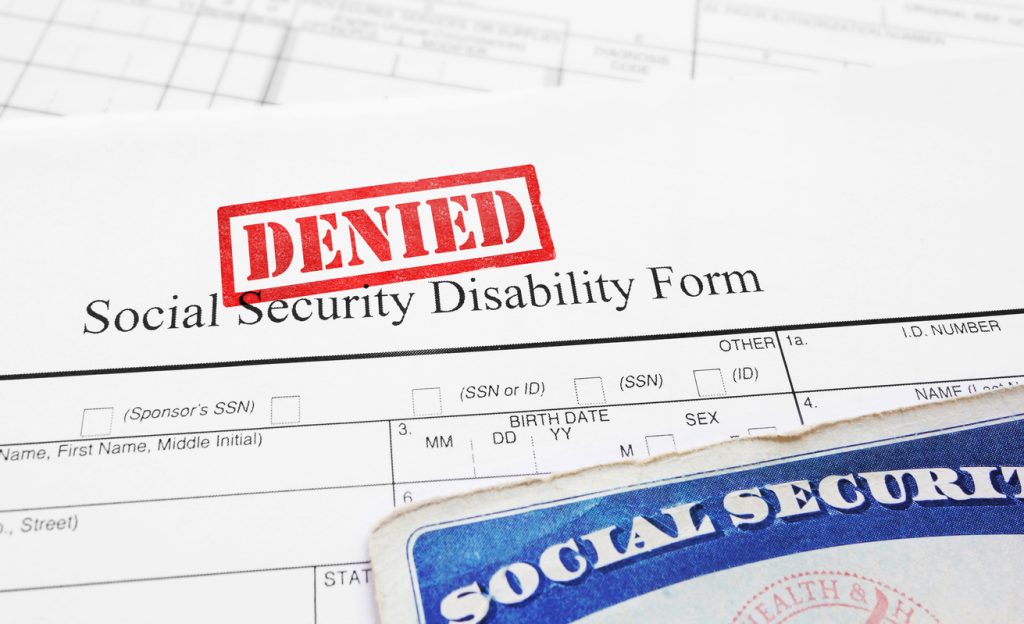These essential documents serve as a treasure trove of information, providing crucial details about the circumstances surrounding an incident, including the parties involved and the cause of the accident. As an injury lawyer in Virginia or a legal journalist covering personal injury cases in the state, comprehending the importance of police reports becomes instrumental in constructing robust cases and advocating for clients' rights.
In 2020, Virginia reported 76,695 disability beneficiaries receiving Social Security Disability Insurance (SSDI) benefits. The intersection of personal injury cases and SSDI claims can present complex legal challenges for individuals in the state. Imagine a scenario where someone sustains a severe injury that leaves them unable to work for an extended period or permanently disabled. In such situations, they may be entitled to seek compensation through a personal injury lawsuit and by applying for SSDI benefits. However, simultaneously navigating these two distinct legal processes can be overwhelming and confusing for those facing injuries or disabilities. That's where the expertise of seasoned advocates from a renowned personal injury law firm becomes invaluable. With their help, you can effectively pursue the compensation and benefits you deserve, ensuring your rights are protected and your future secured. If you or your loved ones have been in a similar situation, you can consult the advocates at Emroch & Kilduff.
In this blog post, we will delve into the intricacies of the intersection between personal injury and SSDI claims, shedding light on how these two types of claims can complement each other to secure much-needed compensation and benefits for those who have suffered injuries or disabilities in Virginia.
What is Social Security Disability Insurance?
SSDI is a federal program that provides financial assistance to people who are disabled and unable to work due to their medical condition. To qualify for SSDI benefits:
- You must have worked long enough to earn sufficient credits
- Your condition must meet the Social Security Administration's definition of disability
If you qualify for SSDI benefits, you will receive monthly payments based on your average lifetime earnings before you become disabled.
How Does Personal Injury Relate To Social Security Disability Insurance?
Suppose you suffer an injury due to someone else's negligence or intentional actions, such as a car accident caused by another driver or an accident at a construction site. You may have valid grounds for a personal injury claim in that case. In such situations, the priority should always be seeking immediate medical attention to address injuries sustained. However, it's equally crucial to consider enlisting legal help, mainly if the injury has caused significant financial losses, such as medical bills and lost wages.
When pursuing damages through a personal injury claim arising from accidents like those mentioned above, seeking compensation for lost wages requires a strategic approach. It involves making an insurance claim on the employer's liability policy and considering additional avenues like applying for employment protection. Gathering comprehensive information related to the incident is essential and should include the following:
- Medical bills and documentation supporting the treatment received.
- Eyewitness accounts and filed police reports to establish a clear understanding of the events leading to the injury.
Meticulously presenting well-documented evidence assumes paramount significance in substantiating the loss of earnings and fortifying your case's foundation before embarking on the pre-trial phase. To navigate this intricate terrain effectively, enlisting legal assistance becomes pivotal. By securing professional guidance and meticulously assembling a comprehensive array of supporting documentation, you not only enhance the credibility of your personal injury claim but also elevate the prospect of a favorable outcome. This meticulous approach to filing a personal injury claim serves as a cornerstone in ensuring that your pursuit of justice and rightful compensation remains steadfastly supported.
How the Intersection Works
When individuals receive compensation through a personal injury claim, they may face potential impacts on their eligibility for SSDI benefits. Specifically, suppose you receive a lump sum payout for your confidential injury settlement. That amount is considered income and could potentially reduce or even eliminate your monthly SSDI payments.
However, strategies are available to navigate this issue and safeguard your SSDI benefits. One practical approach is to structure your personal injury settlement in a way that does not affect your eligibility for SSDI. For instance, establishing a special needs trust specifically designed to cover expenses related to the beneficiary's disability can help ensure that any funds received from your personal injury settlement will not be considered income when determining your eligibility for SSDI benefits.
By carefully planning the structure of your personal injury settlement with considerations for SSDI eligibility, you can optimize the financial support available while safeguarding your entitlement to vital SSDI benefits.
Important Considerations
Navigating the complexities of personal injury and Social Security Disability Insurance (SSDI) claims can be overwhelming. If you are considering pursuing both types of claims, here are some essential points to keep in mind:
- Seek legal advice from an experienced attorney in personal injury and SSDI claims to navigate the complexities of effectively pursuing both claims.
- Understand that obtaining SSDI benefits can be lengthy, often taking months or even years due to documentation requirements and potential errors.
- Consider other alternatives like short-term disability insurance or workers' compensation if your injuries only temporarily hinder your ability to work and do not meet the SSA's definition of disability.
- Never provide false statements or exaggerate your impairments when making allegations in either claim, as doing so can lead to disqualification and legal consequences. Honesty and accuracy are crucial in both personal injury and SSDI claims.
Conclusion
Sustaining severe injuries due to another party's irresponsibility can have significant financial implications, leading to permanent incapacity to work or temporary unfitness. Seeking redress through various channels, including Social Security Disability Insurance (SSDI) application, becomes essential for those facing such challenges. The intersection between personal injury claims and SSDI benefits underscores the importance of seeking assistance from knowledgeable attorneys who can effectively navigate both systems' complexities. Early legal advice can pave the way for obtaining compensation and supplemental assistance, providing much-needed support during difficult times. It is crucial for individuals disabled as a result of accidents to take timely action and apply for disability benefits. At the same time, the opportunity still exists, as unforeseen circumstances may arise. By taking proactive steps, injured individuals can protect their rights and secure the financial support they deserve.





















